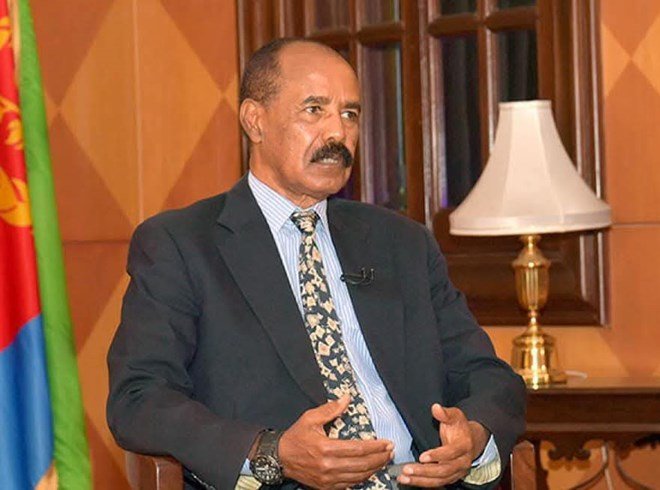Monday 2,Dec,2024{HMC} Eritrean President Isaias Afwerki has dismissed allegations that a recent trilateral agreement between Eritrea, Somalia, and Egypt forms an “axis” against Ethiopia, calling the claims baseless propaganda designed to fuel regional mistrust.
In a Saturday evening interview on national television, Isaias emphasized that the trilateral agreement, signed in Asmara, is focused on promoting stability across the Horn of Africa, the Nile Basin, and the Red Sea. “Eritrea has no interest in seeing Ethiopia destabilized,” he stated, underscoring his nation’s commitment to fostering cooperation in one of the world’s most volatile regions.
The accusations come amid heightened tensions between Ethiopia and its neighbours following Addis Ababa’s controversial memorandum of understanding with Somaliland. This deal, aimed at securing access to a Red Sea corridor, has deepened Ethiopia’s rift with Egypt over Nile River resources and drawn quiet discontent from Eritrea.
Isaias condemned what he described as “foreign-backed disinformation campaigns” spread through traditional and social media platforms, warning that such narratives risk further inflaming regional conflicts.
President Isaias also took aim at Ethiopia’s political framework, describing the country’s 1994 constitution as “fundamentally flawed” and a key source of instability. He argued that Ethiopia’s unresolved internal conflicts, including the Tigray war and recent unrest in the Amhara region, have hindered its ability to contribute positively to regional peace.
The president linked Ethiopia’s prolonged border clashes with Eritrea to external interference but refrained from naming specific actors. He pointed to the TPLF’s rocket attacks on Eritrea during the Tigray conflict as evidence of destabilizing forces at play.
While much of the interview focused on Ethiopia, Isaias reiterated Eritrea’s commitment to fostering stability in Sudan. “The resolution of Sudan’s conflict ultimately lies with its people, but our historical ties compel us to support efforts toward peace,” he said.
Isaias also reflected on shifting global power dynamics, criticizing U.S. policies while questioning the potential for meaningful change under President-elect Donald Trump. “For three decades, U.S. influence has waned, and it faces growing challenges from rising powers like China and Russia,” he noted.
Despite strained ties with Washington, Isaias called for constructive engagement, urging Eritrea to prepare for partnerships that advance mutual interests. “We must focus on productive work that builds trust and cooperation,” he said.
Source Hiiraan online



